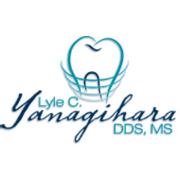
When it comes to congenital issues, one of the most common is a cleft lip, a split along the upper lip that can vary from a tiny slit to a large gap under the nose. A cleft palate involves a similar separation along the roof of the mouth. Thankfully, because these are common enough issues, they can be corrected by a maxillofacial surgeon. To better understand the problem and the surgery itself, here's what you need to know.
What to Know About Cleft Lips and Palate Surgery
How does a cleft lip or palate form?
For various issues still being researched, a cleft occurs when the developing tissue along the lip or palate does not fully join to the other side. Unfortunately, the exact cause has not been pinpointed, as a cleft can be an isolated congenital defect or an underlying issue for something else.
What kind of problems can occur without surgery?

Although the cleft's degree matters, children generally will experience problems eating and speaking. A cleft lip can affect the gums and alignment of the teeth; the latter can be anything from undersized teeth or overcrowding.
However, if they only have a cleft lip, their overall speech isn't that different. As for a cleft palate, that can impact speech. It can also cause hearing issues, as the muscles of the palate help the middle ear drain fluids. Ear infections and even hearing loss can occur without surgery.
When is the best time for a maxillofacial surgeon to operate?
To address a cleft lip, it's best to have a maxillofacial surgeon perform the surgery within the first year, ideally between three to four months. Fixing the cleft lip at this stage helps the lip muscle strengthen over time.
The surgery for repairing a cleft palate, however, is done after the child is nine months, but before they are two years old. Because the palate is critical for speech and language development, it's best to have this done before they start speaking significantly.
What can be expected after the surgery?
After surgery, most children will have an easier time eating and developing their speech. However, there is a one in five chance that the split, or a part of it, opens again. Even if it's a small hole, this can create problems, but a maxillofacial surgeon can repair it.
For a maxillofacial surgeon you can trust, contact Lyle C. Yanagihara, DDS, MS. Located in Honolulu, HI, he's known for various dental and oral operations involving dental implants, bone grafting, oral pathology, and cleft lips and palates. You can learn more about his practice and experience online or by calling (808) 973-1433.
About the Business
Have a question? Ask the experts!
Send your question

